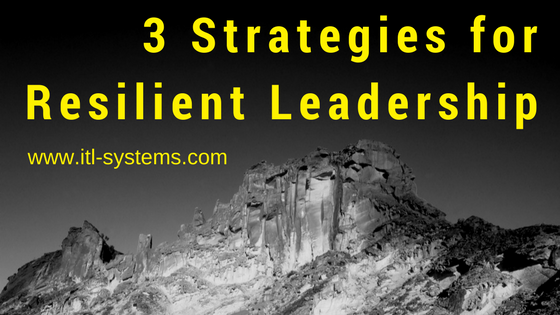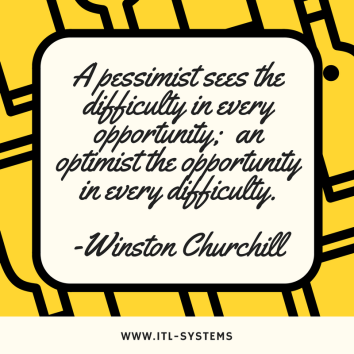
Leadership is a challenge and an opportunity. As leaders, we are responsible for keeping things moving through the good times and the bad. According to Julie Poulin, Won Jung Kim and Anne Germain, “psychological resilience refers to actions and attitudes the individual can use to adapt to challenging situations and to reach a new level of functioning; it can also produce a ‘steeling effect’ that promotes growth.” What do leaders do to recover from adversity? We know that all successful entrepreneurs and leaders have failed at some point. The good news in life is that we can face challenges, bounce back, grow, and create amazing opportunities. What are some of the strategies that leaders can use to become resilient?
- Create a network of support. You are not an island. A network of supports provides you with back up when things get tough. For leaders, your network of support can be both personal and professional. Your personal network of support is most likely close friends, family members, and maybe a spiritual connection. These are the
 people who will help you process the difficulties on a personal level. They will encourage you to take care of yourself, and help lighten your load as you deal with whatever may be happening at work. Your professional network of support is a group of trusted advisors who will help you to reframe your situation, pull you out of the trees so you can see the forest. It is important to cultivate a network of support that complements your strengths and mitigates your weaknesses. So, look for people who’s strengths work well with yours, but especially look for people who’s strengths neutralize your weaknesses. They will help you gain a new perspective and energize you through challenges.
people who will help you process the difficulties on a personal level. They will encourage you to take care of yourself, and help lighten your load as you deal with whatever may be happening at work. Your professional network of support is a group of trusted advisors who will help you to reframe your situation, pull you out of the trees so you can see the forest. It is important to cultivate a network of support that complements your strengths and mitigates your weaknesses. So, look for people who’s strengths work well with yours, but especially look for people who’s strengths neutralize your weaknesses. They will help you gain a new perspective and energize you through challenges.
- Cultivate optimism. As we discussed last week, optimism allows people to inspire growth, think outside of the box, inspire others, and enjoy life. Optimistic leaders are able to see a problem as an opportunity, rather than an obstacle that may not be conquerable. When issues arise, they embrace creativity and look for outside of the box solutions to create opportunities for growth. Optimism also helps foster
 resiliency because optimistic leaders will naturally develop more of a social support network because people like being around optimistic and happy people. Optimism is contagious. Leaders who cultivate optimism will also spread resiliency through the organization.
resiliency because optimistic leaders will naturally develop more of a social support network because people like being around optimistic and happy people. Optimism is contagious. Leaders who cultivate optimism will also spread resiliency through the organization.
- Develop healthy self-care practices. It is important to take care of yourself. Resilient leaders usually have a healthy routine that allows them to take care of themselves in all situations, and they are able to easily fall back on these routines when life throws challenges in their path. Coping with challenges and being resilient requires significant energy. You need to develop healthy eating, sleeping, and exercising practices to help you stay healthy as you develop new ways to address challenges in your life. Regular exercise helps facilitate information processing and memory functioning. Eating healthy food fuels your body so you can have the energy to engage in resiliency practices. The CDC calls sleep “the third pillar of health.” According to the 2013 Harvard Corporate Sleep Summit, sleep heavily influences the prefrontal cortex which is important for innovation, self-control and creativity. Sleep is necessary for you to have the capacity to look for innovative solutions to move you and your organization forward through this challenge.
 We all have the ability to be resilient, the question is how hard will it be to lean into that resiliency? Being intentional about practicing strategies for resilience will allow those strategies and resources to be more easily accessible when life happens. Just like any other skill, practice makes perfect. The more you cultivate optimism, develop healthy self-care practices, and engage with your support network, the more prepared you are to lean in to resiliency when challenges. come your way.
We all have the ability to be resilient, the question is how hard will it be to lean into that resiliency? Being intentional about practicing strategies for resilience will allow those strategies and resources to be more easily accessible when life happens. Just like any other skill, practice makes perfect. The more you cultivate optimism, develop healthy self-care practices, and engage with your support network, the more prepared you are to lean in to resiliency when challenges. come your way.